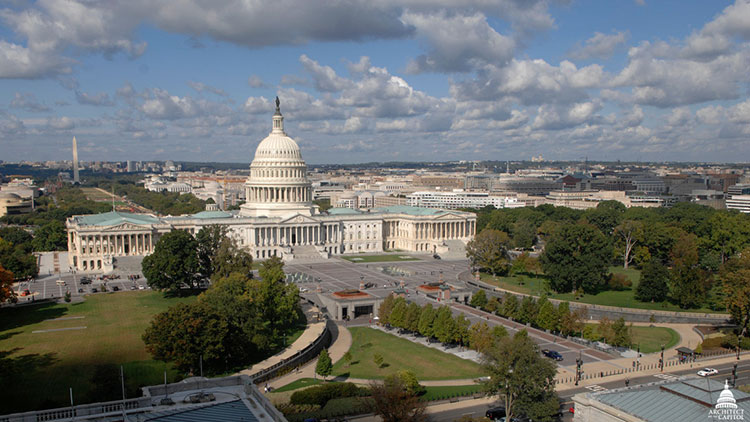House Dems Use Markup To Slam Net Neturality Rule Rollback

The smarter way to stay on top of broadcasting and cable industry. Sign up below
You are now subscribed
Your newsletter sign-up was successful
House Democrats used a House Communications Subcommittee markup of a pirate radio bill Wednesday (June 13) to express their opposition to the FCC's rollback this week of network neutrality rules.
Related: Net Neutrality Rule Rollback Effective June 11
That was during a markup of H.R. 5709, Preventing Illegal Radio Abuse Through Enforcement (PIRATE) Act, and three more otherwise bipartisan bills. A markup is a business session to vote on whether to favorably report a bill to the full committee in the case of subcommittees, and the full House in the case of full-committee markups.
Rep. Mike Doyle (D-Pa.), ranking member of the subcommittee, introduced an amendment to that pirate radio bill that would have replaced the base bill with one that would restore the net neutrality rules just jettisoned. He also put in a plug for supporting his Congressional Review Act (CRA) resolution that would nullify the rollback and restore the rules.
Several Democratic subcommittee members then weighed in with their criticisms of the FCC rule rollback, including full committee ranking member Frank Pallone (D-N.J.), as well as their support for the amendment and the CRA. Doyle then immediately withdrew the amendment.
Related: House Votes to Repeal FCC Privacy Rules
Pallone talked about the majority of Americans who he said supported the net neutrality rules, and echoed the call for support of Doyle's CRA. He said net neutrality rules were needed to keep Americans from being pushed behind big corporations into an online slow lane.
The smarter way to stay on top of broadcasting and cable industry. Sign up below
That legislative kabuki dance was a way to make a point, rather than any effort to actually replace the bipartisan base bill with the proposed amendment, which would have been immediately voted down by the Republican majority.
Doyle repeated the process with a proposed amendment that would have replaced the base bill with one restoring the FCC broadband privacy rules approved under former Democratic FCC chairman Tom Wheeler and subsequently nullified by a Republican Congressional Review Act (CRA).
After that was also withdrawn, the base bill, H.R. 5709, the Preventing Illegal Radio Abuse Through Enforcement (PIRATE) Act, was approved unanimously by voice vote.
That bill boost fines and enforcement against pirate radio broadcasters, who bill sponsor Rep. Leonard Lance (R-N.J.), vice chairman of the subcommittee, pointed out can represent a threat to licensed broadcasters and the life-saving information they provide.
"This bill rightfully increases the penalties, requires regular enforcement sweeps and augments the tools available to the Commission to stop illegal pirate broadcasters," said FCC Commissioner Michael O'Rielly, who has made fighting pirate radio a signature issue of his commissionership. "At the same time, the bill notably excludes legitimate Part 15 operations, otherwise known as radio hobbyists. Today’s mark-up is an important step forward in ensuring the PIRATE Act becomes law and I look forward to seeing the bill take the next step in the legislative process.”
The subcommittee also favorably reported out two broadband-related bills, H.R. 3994, the Advancing Critical Connectivity Expands Service, Small Businesses Resources, Opportunities, Access, and Data Based on Assessed Need and Demand (ACCESS BROADBAND) Act, and H.R. 4881, Precision Agriculture Connectivity Act of 2018.
H.R. 3994 would create an Office of Internet Connectivity and Growth within the National Telecommunications & Information Administration, which is the White House's chief telecom policy advisor, while H.R. 4881 would direct the FCC to create a task force to "meet the connectivity and technology needs of precision agriculture in the United States." Those are broadband-enabled technologies that allow farmers to collect data in real time on cropland and ranchland.
Doyle supported the ACCESS BROADBAND Act, but said it was only a step in the right direction, and that if they wanted to address the deployment and adoption challenges facing the nation, particularly in low income and rural areas, they needed to do more, including investing more. He also took a shot at the FCC, saying its "ill-conceived actions on Lifeline and the Mobility Fund II debacle" called for more FCC oversight.
“GPSIA applauds the subcommittee for adopting legislation that recognizes the critical role of precision agriculture,” said executive director J. David Grossman in a statement. “Precision agriculture, including the integration of GPS technology, is enabling farmers to more efficiently manage their crops, which in turn saves time, money and reduces unnecessary waste of critical resources. We thank Representatives Latta and Loebsack for their leadership in championing H.R. 4881 and look forward to seeing the full Energy and Commerce Committee favorably consider the legislation.”
Contributing editor John Eggerton has been an editor and/or writer on media regulation, legislation and policy for over four decades, including covering the FCC, FTC, Congress, the major media trade associations, and the federal courts. In addition to Multichannel News and Broadcasting + Cable, his work has appeared in Radio World, TV Technology, TV Fax, This Week in Consumer Electronics, Variety and the Encyclopedia Britannica.

